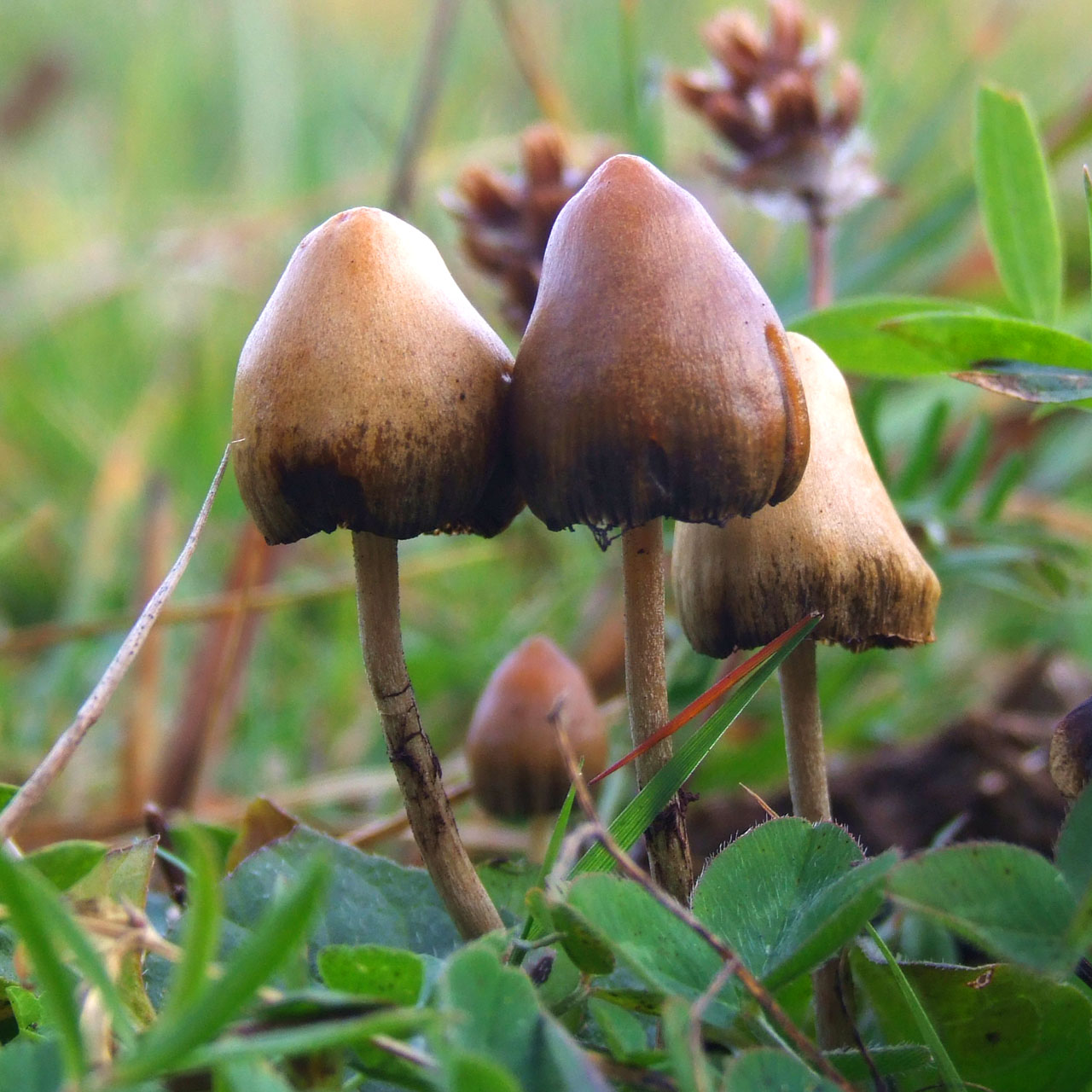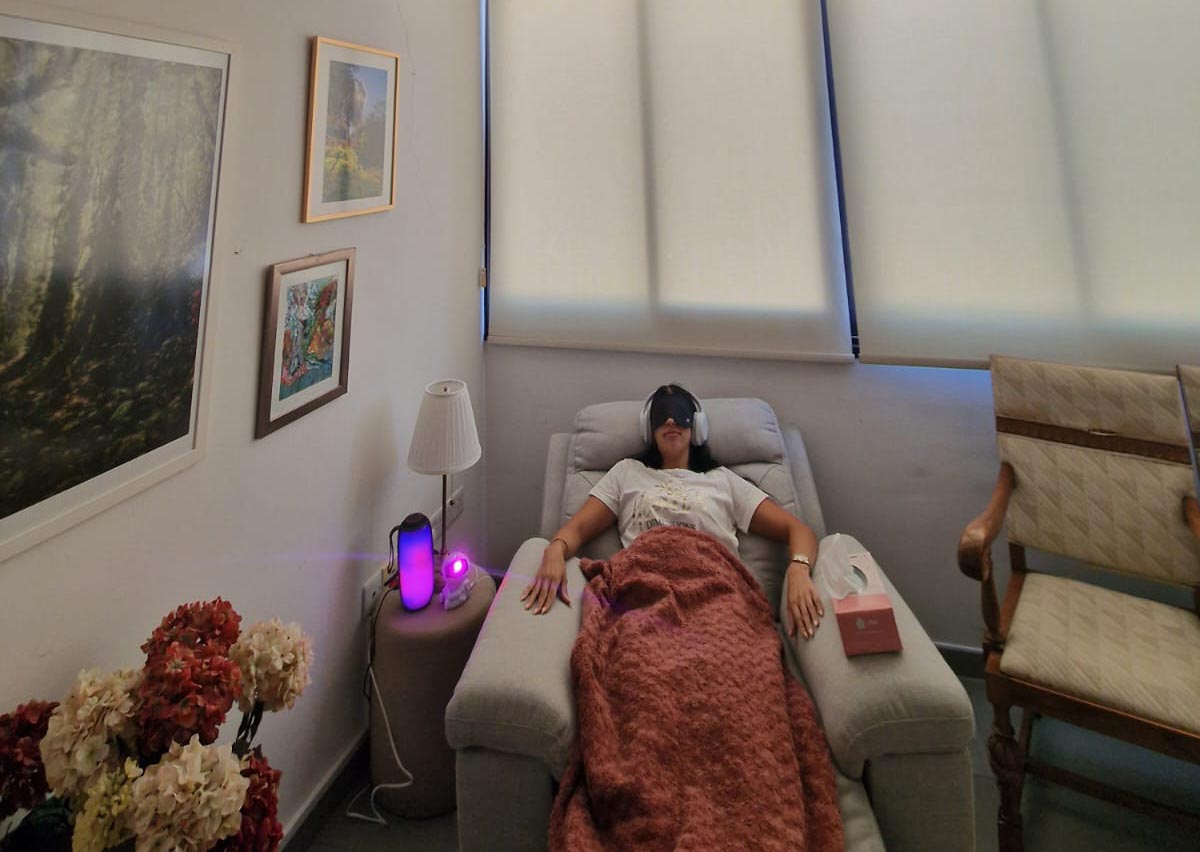Growing acceptance of psychedelics in treating some mental illnesses
Psychiatry is currently at a turning point as a new potential trend has been emerging in Cypriot mental healthcare.
While still strictly illegal in Cyprus, elsewhere psychedelics are moving away from being “forbidden substances” to carefully considered medical tools for some mental illnesses, according to psychiatrist Georgios Mikellides.
He said treating severe cases of depression, PTSD, anxiety and other common mental health conditions has remained stagnant for years, relying on psychotherapy and medications. This has led to those patients with treatment-resistant conditions being prescribed with ever-increasing doses.
“This gap has created enormous suffering and a pressing need for new approaches,” said Mikellides. The renaissance of psychedelics raises the question of the potential of these ‘unorthodox’ treatment techniques.
An explosion of scientific interest in psychedelics, and specifically in psilocybin – a compound found in ‘magic mushrooms’ – can be seen on an international basis, with Yale and Imperial College London sharing extensive evidence on its benefits when combined with therapy. It must be stated quite clearly at this point that research discussing the long-term effects of psychedelic-administered treatment is scarce.
However existing evidence so far has shown something revolutionary. It showed countless benefits that would otherwise take years of traditional therapy to achieve appearing within just a few sessions of psychedelic therapy.
One 23-year-old with experience in facing mental health challenges said if such treatment was available on the island, it would help her with everything from reducing depressive symptoms to controlling existential distress, a symptom “practically unheard of in conventional medicine”.
Mikellides’ own research showed promise in enhancing meaning and acceptance of mortality in terminally ill patients by reducing depression and anxiety. The patient control group described enhanced meaning, and spiritual wellbeing following psychedelic-assisted therapy.
Of course, reservations follow wherever psychedelics are used. Executive director of the National Addictions Authority (NAAC), Costantinos Stylianou, spoke on the conversation sparked by such topics.
“It always carries the risk of entrenching the view that all illegal or narcotic substances have some therapeutic properties,” he stressed, referring to past discourse on cannabis. Meanwhile, the health ministry was asked to share their views on the matter, but the Cyprus Mail received no response.
Considering that past evidence has shown that within controlled environments, the psychedelics used in medical procedures are safe and non-addictive, public discourse will be mixed.
“Authorities must proceed with extreme caution,” said Stylianou.
Mikellides made an analogy: “Think of psychedelic-assisted therapy as a medically supervised reset for the brain.”
Conditions such as depression and PTSD involve the brain becoming ‘stuck’ in rigid patterns of thought and emotion, he said.
“Psychedelics, when used in carefully controlled sessions, can temporarily loosen those rigid patterns and create a window of new perspectives, process past trauma, or reconnect the patients with themselves in ways that traditional treatments sometimes cannot achieve.” Patient control groups have described this process as a shift from being ‘stuck in the dark’ to suddenly seeing light and new possibilities.
The earliest recorded use of psychedelics dates all the way back to ancient civilisations like the Aztecs, the Greeks and the Maya. Archaeological finds of ‘mushroom stones’ and other artefacts depict hallucinogenic mushrooms which were used in religious practices for centuries.
Psychedelics have maintained their presence throughout history but in more recent times were popularised by the hippie movement in the 1960s.
Conservative Cyprus remained relatively immune to that movement and was certainly open to making a wide range of so-called recreational drugs strictly illegal, including psychedelics.
While skepticism over psychedelics in Cyprus remains, existing evidence says otherwise. Healthcare organisations, namely the Food and Drug Administration (FDA) and European Medicine Agency are paying close attention, with approvals already under consideration.
“Cyprus has an opportunity to be part of this global dialogue, rather than waiting until reforms are already widespread elsewhere,” Mikellides said.
While the island has been historically conservative, for Mikellides this is not an issue. He sees conservatism as an opportunity.
“It can be a strength here, because it encourages us to move slowly, carefully and responsibly.” He believes that Cypriots will proceed with caution, similar to medicinal cannabis.
He feels that through “transparency, evidence and safety measures”, the public will be ready to think of psychedelics as the serious medical tools that they are, instead of illicit lifestyle products.
On one point both Mikellides and the NAAC agree. Psychedelic treatment is not suitable for everyone. They emphasise the importance of public understanding that current research applies only to specific conditions, administered within highly structured protocols, and that psychedelics are not a cure-all. They agree that targeted use is essential.

And Stylianou adds a caveat. “There is not yet scientific evidence for it to be widely accepted by the entire psychiatric world.” He said the NAAC supports using scientifically validated medical procedures only when they are part of clinically tested therapeutic programmes.
How would healthcare practitioners introduce this ‘unorthodox’ treatment to patients who benefit greatly, but continue to show reservations?
“The key is trust and clarity,” said the psychiatrist. He stressed that hesitation is natural, and it is the practitioner’s responsibility to introduce the idea step by step.
Discussing the risks of the procedure is an essential step to safeguarding the treatment experience.
“Patients appreciate honesty,” he said. Explaining that there are risks if the treatment is misused, is “exactly why it must only be done in safe, professional settings”, he stressed.
As expected, public discourse varies. While some people were extremely open to the idea of treating some of the most common and persistent conditions through psychedelics, others were hesitant. Nearly all of those questioned were open to the idea of exploring psychedelic treatment as a possibility if it were available but were concerned about its long-term effects.
“Shifting a person’s entire perspective, their sense of self, their place in the world, and how they connect to it, is nearly impossible through conversation alone,” said a 23-year-old,
Another spoke of misinformation. “There are no inherent negative implications to psychedelics, but rather confusion and uncertainty.”
A 22-year-old was concerned about psychedelic treatments being anxiety-inducing. Others felt that the opinion of their personal physicians would directly impact their decision to proceed with the treatment but were open it. “Information is of the essence, I would be willing to try this treatment, as long as my physician is transparent about the risks and how these will be mitigated,” said a 51-year-old woman.
The public urgently needs new treatment options for when traditional medicine fails. But the integration of psychedelics in psychiatry must be slow and well-researched. And clear boundaries must be set with conditions controlled to avoid misuse.
Who can use psychedelics? What are the risks? What can they treat and what can they not? Ensuring that patients feel safe and are informed is key to safely continuing research into administering psychedelic-assisted therapies.
“Psychedelics are moving from being forbidden substances to carefully considered medical tools. The direction is forward, but with strict caution,” said Mikellides.






Click here to change your cookie preferences